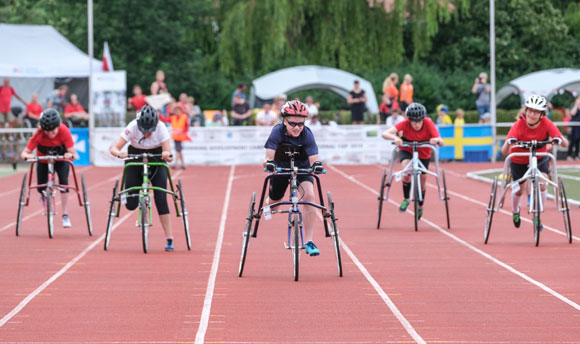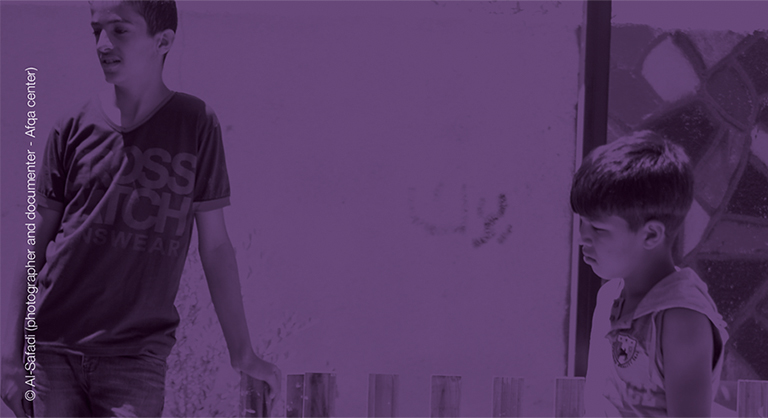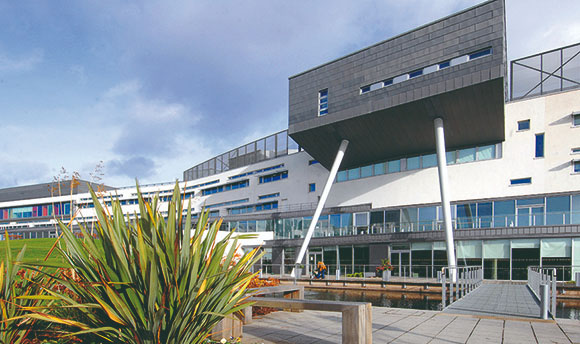Annual Report for the Concordat to Support the Career Development of Researchers 2024
| Name of Institution | ╣·▓·┬╥┬╫, Edinburgh |
| Reporting period | November 2023-November 2024 |
| Date approved by governing body |
Approved by the University Court on 18 December 2024 |
| Date published online | 7 January 2025 |
| Web address of annual report | /research-and-knowledge-exchange/strategy-and-culture/concordats-and-sector-good-practice/concordat-to-support-the-career-development-of-researchers/annual-report-on-compliance-to-court-2024 |
| Web address of institutional Researcher Development Concordat webpage | /research-and-knowledge-exchange/strategy-and-culture/concordats-and-sector-good-practice/concordat-to-support-the-career-development-of-researchers/ |
| Contact for questions/concerns on researcher career development | Name: Kim Stuart, Director of Research and Innovation, Research and Knowledge Exchange Development Unit (RKEDU) |
|
Date statement sent to Researcher Development Concordat secretariat via CDRsecretariat@universitiesuk.ac.uk |
8 January 2025 |
Statement on how the organisation creates, maintains and embeds a research culture that upholds a positive and inclusive environment for researchers at all stages of their careers.
╣·▓·┬╥┬╫ is dedicated to building a positive and healthy research culture based on diversity, inclusivity and mutual respect across all activities to help us to attract and retain our talented staff and students. Equality of opportunity is essential to achieving research excellence and we believe our diversity of thought and culture is fundamental to our ability to solve complex challenges. We aim to remove barriers, eliminate discrimination and make sure all researchers have the opportunity to reach their full potential. We offer opportunities for researcher development training and mentoring; funded initiatives; interdisciplinary events; support for external collaboration; enterprise and innovation services; grant writing support; and career and professional resources to enhance employability, with opportunities to meet others and become part of our vibrant research community.
╣·▓·┬╥┬╫ Research and KE Centres are key to implementing our╠¤Research and KE Strategy 2022-27╠¤and act as the strategic drivers for excellence in Research and KE, including the Research Excellence Framework (REF) 2028. They work at the intersection of conventional disciplinary groupings to create innovative approaches to contemporary societal challenges and public discourse and underpin our strategic commitment to an open, positive and healthy research and KE culture. Following a major strategic review in 2023 we re-launched a new framework and KPIs for the creation, governance and membership of Centres.
░┐│▄░ї╠¤Research and KE Strategy 2022-27╠¤is focused on the strategic priorities of People, Culture and Impact and is underpinned by our commitments to the national Concordats for╠¤,╠¤╠¤,╠¤╠¤and╠¤╠¤These commitments are reflected in our publicly facing Concordat Action Plans for the╠¤Concordat for Researcher Development╠¤and the╠¤KE Concordat.
In 2023-24 ╣·▓·┬╥┬╫ Research Culture Group (RCG, formerly Concordat for╠¤Researchers Development Working Group) expanded its remit and membership to╠¤include development and monitoring of organisational obligations to implement╠¤the principles of the and the
╣·▓·┬╥┬╫ has championed and been involved in the UK Culture, Employment and Development in Academic Research Survey (CEDARS) since its pilot year in 2020. This has helped us gather anonymous data about working conditions, career aspirations and career development opportunities for research staff and research leaders.
In 2024 our RCG, chaired by a member of our Professoriate, in╠¤collaboration with our Research and KE Centres, championed ╣·▓·┬╥┬╫ participation in╠¤the national pilot Research Culture Landscape Survey (RCLS), which will contribute╠¤towards development of a new institutional research culture framework and KPI,
inclusive of both quantitative and qualitative indicators.
A secondment of a member of our academic staff to the role of a Research and KE╠¤Fellow has been extended for additional 24 months to work with our Research and╠¤KE Development Unit (RKEDU) and with our RCG to progress research culture╠¤focused developments. These efforts are also supported by School Research and KE╠¤Leads who promote an inclusive and supportive research and KE culture in their╠¤respective Schools to support the delivery of the UniversityтАЩs strategic aims,╠¤including our commitment to the UK Concordats.
Provide a short summary of the institutionтАЩs strategic objectives and implementation plans for delivering each of the three pillars of the Concordat (environment and culture, employment, and professional development of researchers) for your key stakeholder groups together with your measures for evaluating progress and success.
The UniversityтАЩs Concordat for Researcher Development Action Plan 2022-25 sets out our strategic objectives for delivery of the three Concordat Pillars and measures for success evaluation.
Environment and Culture
- Roll out the Concordat to Support Research Integrity Self-Assessment Toolkit.
- Embed the principles of the UK technicians Commitment.
- Implement new systems and processes for the governance of research ethics and ensure alignment with national guidance on safeguarding and research.
- Review and enhance Research Data Management policies, governance and associated training to ensure that research data is managed to meet requirements of collaborators, funders and research participants.
- As a signatory to Declaration on Research Assessment (DORA) and the Leiden Manifesto, build on and enhance institutional principles to support the responsible use of metrics.
- Implement transparent and robust policy and processes to support researchers reporting bullying, harassment, discrimination and research misconduct.
- Promote a working environment that supports the mental health and wellbeing of researchers to fulfil their roles and responsibilities.
- Commit to ongoing participation in CEDARS to monitor excellence in our research culture and environment and allow for national benchmarking and longitudinal comparison.
- Ensure School, Research and KE Centre and Professional Service Operational Plans are aligned with strategic priorities for research and KE and provide transparent and robust enablers.
Employment
- HR policy review to ensure transparent and equitable access for Contract Research Staff (CRS) to enhance terms of employment, career pathways and professional and career development.
- Improve clarity and support for the use of the Academic Workload Allocation Model (AWAM).
- Take account of CRS feedback on HR policies as part of HR policy review.
- Ensure the ╣·▓·┬╥┬╫ sabbatical policy and other mechanisms for researcher development are visible and embedded.
- Enhance support for researchers returning from periods of absence e.g. parental leave or secondments.
- Engage in sector developments to address precarity in research careers.
Professional Development of Researchers
- Support Early Career Researchers (ECRs) and CRS in consolidating external research identities and profiles.
- Develop new guidance to enhance systems and support for researcher identity.
- Provide a clear KE and impact career pathway.
- Gather and publish data on the career destinations and subsequent career paths of researchers.
- Promote and monitor uptake of the institutional policy of 10 days (pro rata) for professional development for colleagues involved in research and KE.
- Strengthen support and infrastructure for researcher development by growing external and collaborative researcher training.
- Review how we support internal and external collaboration through sector researcher development, research leadership and ECR networks and mentoring.
- Embed training and development opportunities for doctoral, ECR, and midcareer Researchers to improve skills and update learning to respond to current research environments.
- Provide training and guidance for managers in undertaking effective development conversations.
Please provide a brief statement describing your institutionтАЩs approval process of this report prior to sign off by the governing body
This report was developed with input from and based on activities arising from the work of our Research Culture Group (RCG). The report is subject to approval by ╣·▓·┬╥┬╫ RSC and Senate prior to submission to University Court.
Concordat Pillar: Environment and Culture
Summary of actions taken, and evaluation of progress made, in the current reporting period to implement your plan to support the three pillars in respect of each of your key stakeholder groups Institution; Academic Managers of Researchers
In 2024 ╣·▓·┬╥┬╫ participated in the national pilot Research Culture Landscape Survey (RCLS). Independent analysis and benchmarking of ╣·▓·┬╥┬╫ performance against aggregate data from other participating Higher Education Institutions (HEIs) was completed by Vitae. This provided valuable data for measuring advancement of ╣·▓·┬╥┬╫тАЩs Concordat for Researchers Development Action Plan 2022-25 and a tool to measure progress towards excellence in our research environment and culture over the REF 2029 census period, in addition to data from biennial CEDARS.
Data from this pilot has been used to evaluate progress towards target outcomes within the reporting period. Where no relevant data from the 2024 pilot RCLS is available, we include evidence from CEDARS 2023 as a measure of evaluation.
Institution
In 2024, new Institutional Research Governance structures were approved by ╣·▓·┬╥┬╫ Research Strategy Committee (RSC). Work to finalise their remit is ongoing, pending further development in 2024-25.
A strategic review of our Research and KE Centres (RKEC) takes place annually to ensure that institutional Concordat commitments are embedded and monitored at a local level. Quarterly meetings of RKEC Directors provide a mechanism to review collective developments and share good practice, further supported by School Research and KE Leads.
New ╣·▓·┬╥┬╫ guidance for Safeguarding in Research and KE was approved by University Court in March 2024. Work on ╣·▓·┬╥┬╫ Code of Practice in Research and KE and misconduct management procedures has commenced and is undergoing consultation, led by a Professorial Lead.
A new system and structures for an online Ethics Application has been launched alongside an enhanced Research Ethics Policy. This will be underpinned by training for staff, students and reviewers. We also enhanced guidance on NHS Ethics for staff, with training provided in February 2024.
A Dignity in Work and Study Policy was launched in September 2024, with our HR team delivering formal training to enhance staff knowledge and awareness.
In April 2024, ╣·▓·┬╥┬╫ re-joined the UK Research Integrity office (UKRIO), enabling access to enhanced resources and support. ╣·▓·┬╥┬╫ has recently become a signatory to the East Lothian Community Wealth Building (CWB) to deliver long-term place-based research collaborations and drive inclusive growth.
In line with our commitment to progressing Equality, Diversity and Inclusion in Research Careers, in 2024 a ╣·▓·┬╥┬╫ REF 2029 Associate Academic Lead - Women in Research Champion was appointed to support ╣·▓·┬╥┬╫ REF 2029 submission strategy and review.
Academic Managers of Researchers
Research Managers continue to promote policy and training opportunities relevant to CRS, with four drop-in sessions per academic year dedicated to enhancing awareness of ╣·▓·┬╥┬╫тАЩs commitment to the Researchers Development Concordat and its relevance to CRS and broader research culture.
╣·▓·┬╥┬╫тАЩs School of Health Sciences facilitated two researchersтАЩ events in session 2023-24, promoting ╣·▓·┬╥┬╫ research, sharing good practice and providing opportunities for networking and collaboration.
Based on the pilot RCLS 2024, 87% of ╣·▓·┬╥┬╫ respondents felt fairly treated and 77% felt appropriately supported by their line manager. 81% felt that their manager communicates clear expectations around behaviour, an improvement on CEDARS 2023 result (59%). These results were in line with the pilot aggregate.
Researchers
In September 2024, researchers from ╣·▓·┬╥┬╫ School of Health Sciences, in partnership with RKEDU, hosted a workshop for delegates across modern universities in Scotland to strengthen collaboration and promote collegiality in research culture. The workshop resulted in a collaborative funding bid for the Royal Society of Edinburg Collaboration Grant, to support long-term engagement.
Pilot RCLS 2024 identified that largely, researchers perceive ╣·▓·┬╥┬╫ as a suitable (76%), safe (94%) and accessible (87%) place to work. 73% believed that they could voice ideas, concerns and questions without fear of repercussion or humiliation. These results were in line with the pilot aggregate. Although 74% staff expressed a sense of belonging at ╣·▓·┬╥┬╫, only 59% felt part of a research community (lower than 74% pilot aggregate). 79% respondents reported that different ideas and approaches to research are valued. 83% agreed that there are opportunities to collaborate with colleagues. However, only 54% reported that they adopt open research practices, lower compared to what is observed in the pilot aggregate (70%). 85% felt that ethical standards are high in their research environment and 84% believed they can be transparent about all aspects of the research process. 59% respondents felt that the working environment supports their mental health and wellbeing, a decrease from CEDARS 2023 results (66%).
Concordat Pillar: Employment
Institution
New proposals for ╣·▓·┬╥┬╫ Academic Career pathways are being developed, with staff consultation taking place in Autumn 2024. In 2023/24 Reward and Recognition processes were postponed but will go ahead in 2024-25, with our HR committed to delivering informal guidance/awareness drop-in sessions for CRS on role review processes in November and December 2024. Staff Performance Enhancement Review (PER) objectives have been updated to include a new Research and KE Category.
A growing programme of Researcher Development activities continue to be promoted to all research staff (10 days pro-rata) with a dedicated manager training programme including coaching approaches, neurodiversity awareness in the workplace and conflict resolution.
╣·▓·┬╥┬╫ participates in the Scottish Universities Research Culture Good Practice Exchange (SURGE), new Scottish Funding Council (SFC) and Universities Scotland supported initiative to create a surge of momentum in addressing sector-wide research culture challenges and enhancing practice across Scottish HEIs. The objective is to promote collaboration and share good practice, foster responsible research, innovation and leadership, and attract and retain talented researchers in Scotland.
The RCLS 2024 demonstrated that 51% of ╣·▓·┬╥┬╫ respondents feel that their contributions to research is recognised by the institution, with fewer believing their contributions are recognised in their allocated workload (47%) and in formal promotion pathways (32%). All these results are lower compared to the pilot aggregate (60%, 55%, 44% respectively). In addition, the results demonstrated that higher proportion of ╣·▓·┬╥┬╫ colleagues not in research-specific contracts do research (63%) compared with the pilot aggregate (42%).
Academic Managers of Researchers
In 2023, ╣·▓·┬╥┬╫ CEDARS respondents broadly agreed that their managers clearly articulate their expectations with respect to their role and performance (77%), set expectations and objectives appropriate to their role (73%), and support them in their broader career aspirations (60%). All those who disagreed strongly with the statements about experiences of being managed at ╣·▓·┬╥┬╫ were women, with just under 1 in 3 women saying that they disagreed strongly that they felt their immediate manager supported them to develop their
research identity and 23% of women disagreeing strongly that their manager supports them in their broader career aspirations, compared to no men in both cases. These results reflected the UK-wide results and were consistent with ╣·▓·┬╥┬╫тАЩs 2021 results.
Only 29% of researchersтАЩ managers reported feeling valued for conducting appraisals/development reviews of staff and the same number for managing staff performance. These numbers were similar to the UK aggregate. 40% of ╣·▓·┬╥┬╫ respondents felt that activities related to developing researchers were valued (27% UK), and 44% felt valued for supervising research students, the same as the UK aggregate. Respondents at ╣·▓·┬╥┬╫ felt more valued for their contributions related to management and administration within the institution than the UK average (58% ╣·▓·┬╥┬╫, 34% UK).
Researchers
RCLS 2024 indicates that 48% of ╣·▓·┬╥┬╫ respondents have access to clear career progression pathways, with a similar proportion of staff (41%) disagreeing that such opportunities are available to them. Only 45% of ╣·▓·┬╥┬╫ respondents felt that their future at the institution is secure, which is markedly lower than the pilot aggregate (79%). Further 18% stated they did not know if they feel like their future is secure, compared with the aggregate 3%.
In September 2024, ╣·▓·┬╥┬╫ RCG revised progress towards gathering and publishing data on the career destinations and subsequent career paths of researchers. This will be taken forward in session 2024-25, with leadership from the Head of Graduate School and Research Centres Directors.
Concordat Pillar: Professional Development
Institution
╣·▓·┬╥┬╫ participates in the UKRIO pilot Research Integrity online training course. In total, 68 colleagues signed up and we continue to monitor and encourage completion. As part of our subscription, ╣·▓·┬╥┬╫ will have ongoing access to this resource from April 2025.
We engage in collaborative initiatives with other HEIs and partners (The British Academy ECR Network, Converge, Scottish Research Integrity Network, Scottish Parliament Academic Network, Scottish Higher Education Researcher Developers, Scottish Policy Research Exchange, UK Policy Engagement Network and Universities Scotland Researcher Development and Culture Committee) to expand professional development opportunities available to ╣·▓·┬╥┬╫ researchers.
As a small HEI, ╣·▓·┬╥┬╫ researchers have benefited from increasingly shared inter-institutional researcher
development. For ECRs, collaboration in researcher training sets the foundation for ongoing interdisciplinary research and future collaboration. We have had a very positive experience in joint training with the University of Edinburgh, Napier, HWU, Abertay, Stirling, RCS, GSA and University of St Andrews.
We have continued to support ╣·▓·┬╥┬╫ researchers to acquire skills for the Commercialisation of Research. In 2024, we published a new ╣·▓·┬╥┬╫ Entrepreneurial Sub-strategy and Action Plan, setting out our entrepreneurial ambitions and mechanisms for their delivery.
We have entered the strategic Bright Red Triangle (BRT) Partnership with Edinburgh Napier University and Edinburgh College which will extend enterprise support and embed entrepreneurial skills across the ╣·▓·┬╥┬╫ curricula.
As part of the Start For Future (SFF) alliance of HEIs, startups and industry partners from across Europe, we have participated in the LEARN and Match & Start entrepreneurial training and coaching programmes designed to develop entrepreneurial skills among research staff and students.
Other key initiatives promoting commercialisation of research at ╣·▓·┬╥┬╫ include Converge, with 2 of 5 ╣·▓·┬╥┬╫ submissions to the Converge Challenge 2024 reaching the finalist stage, and one winning a runner-up prize; the THRIVE Programme, for current and future food and drink entrepreneurs; and SHIFT, ╣·▓·┬╥┬╫тАЩs annual entrepreneurial skills training programme for practitioners in the creative and cultural industries.
Building from our membership of the Scottish Alliance for Food, Health, Equity and Sustainability (SCAF), established in 2023, in June 2024 ╣·▓·┬╥┬╫ hosted the "Being Innovative about Food Innovation" conference, an event designed to unite a diverse community involved in food research, study, industry and charity. The event attracted approximately 100 participants from the UK, Europe, and the US, offering delegates the opportunity to network, exchange knowledge and explore potential for collaborations.
Between February and July 2024, ╣·▓·┬╥┬╫тАЩs Research and KE Development Unit, in collaboration with Research Centres, facilitated an interim internal mentoring scheme, which supported 11 mentorship partnerships.
Academic Managers of Researchers
In 2024, we launched and delivered a dedicated, cross-school manager training programme, with key themes including coaching approaches, neurodiversity awareness in the workplace and conflict resolution.
Researchers
╣·▓·┬╥┬╫ Researcher Development Programme 2023-24 was delivered with an expanded portfolio of professional
development opportunities for CRS, aimed at early- and midcareer colleagues. In total, 140 staff members benefited from these opportunities. Training includes quarterly drop-in sessions focused on the Concordat to Support Researchers Development and the Research Integrity Concordat, Generative AI, Entrepreneurship at ╣·▓·┬╥┬╫, Intellectual Property. Additionally, colleagues have ongoing access to Staff Training Calendar coordinated by HR.
To support the development of our research community, a series of four informal connection events were facilitated in session 2023-24. This was inclusive of CRS, technicians and PGRs and was an opportunity for networking and knowledge exchange.
The 2024 pilot RCLS demonstrated that 86% of ╣·▓·┬╥┬╫ respondents had engaged in relevant professional and career development activities, while 68% reported having regular opportunities to review their development with their line manager. Both indicators are in line with the pilot aggregate.
Comment on any lessons learned from the activities undertaken over this period and any modifications you propose to make to your action plan and measures of success as a result.
We have very much welcomed sector guidance and developments relating to Research and KE Culture. They continue to inform the review of our strategic Research and KE Centres. We are keen to use guidance on the Responsible Use of Metrics to inform future KPIs and assessment and will continue to champion the
principles of the KE Concordat, the Concordat for the Environmental Sustainability, and the technicians Commitment in Scotland.
Areas requiring further work include:
- Ongoing sample audits of research compliance.
- Researcher development engagement monitoring.
- Supporting sustainable routes to research independence.
- Continuing to address Equality, Diversity and Inclusion in research and KE.
- Investment, procurement and implementation of an institutional Research Management System.
- Publishing data on the career destinations and subsequent career paths of researchers
- Clearer Research, KE and impact career pathways.
- Enhanced research governance structures.
Outline your key objectives in delivering your plan in the coming reporting period
- Implementing Research and KE Centre 3 Year Plans.
- Capacity and Capability Building via external collaborations.
- Progress proposals for a research data management system.
- Develop mechanisms for recording and publishing data on career destinations and subsequent career paths of researchers.
- Develop a ╣·▓·┬╥┬╫ Research and KE Culture Framework, to support monitoring of changes in culture across a set of value-led measures, both quantitative and qualitative, aligned with the Culture, Employment and Development in Academic Research Survey (CEDARS) data and REF 2029 People, Culture and Environment (PCE) indicators.
- Finalise ╣·▓·┬╥┬╫ criteria for identifying staff with Significant Responsibility for Research and Research Independence, in line with REF 2029 staff eligibility criteria and PCE indicators.
- Strengthening research and KE Culture through close collaboration with the newly appointed SFC Scottish Research Cultures Collaboration Manager (SRCCM).
- Introducing new research and KE Governance Structures and Policies, including development and implementation of ╣·▓·┬╥┬╫ Code of Practice in Research and KE and Procedure for Investigating Research Misconduct.
- Review and update institutional Research and KE web pages, including those of our Research centres.
- Supporting impact portfolios and capture.
- Fully embedding a refreshed and updated REF 2029 Code of Practice as a driver for culture change beyond REF.
- Continuing to enhance and strengthen support for CRS via co-produced initiatives and resources.
- Building on CEDARS and pilot Research Culture Landscape Survey data, develop new metrics to support People, Culture and Environment in REF 2029.
- Work with the sector to define and adopt new metrics in support of KE culture, via the new Scottish Funding CouncilтАЩs Knowledge Exchange and Innovation Fund (KEIF).
- Publishing and implementing a new institutional statement on the Responsible Use of Metrics in Research Assessment, in line with our commitment to the San Francisco Declaration on Research Assessment (DORA) and the Leiden Manifesto; and progressing to the full adoption of the Coalition on Advancing Research Assessment (CoARA).
- Developing closer links with the UK Reproducibility Network and continuing to be guided by directives, initiatives and training from the UK Research Integrity Office.
- Working with the UK Government Research Collaborations Advice Team (RCAT) on new directives relating to Trusted Research and Secure Innovation.
Signature by Pamela Woodburn, Chair, University Court.
Contact for queries: KStuart@qmu.ac.uk
This annual report will be analysed by Universities UK, secretariat for the Concordat to Support the Career Development of Researchers, to identify good practices, themes for development and information to improve national research culture policy and practice.
If you have any questions, or suggestions on how the reporting process could be improved, please contact the secretariat at CDRsecretariat@universitiesuk.ac.uk






